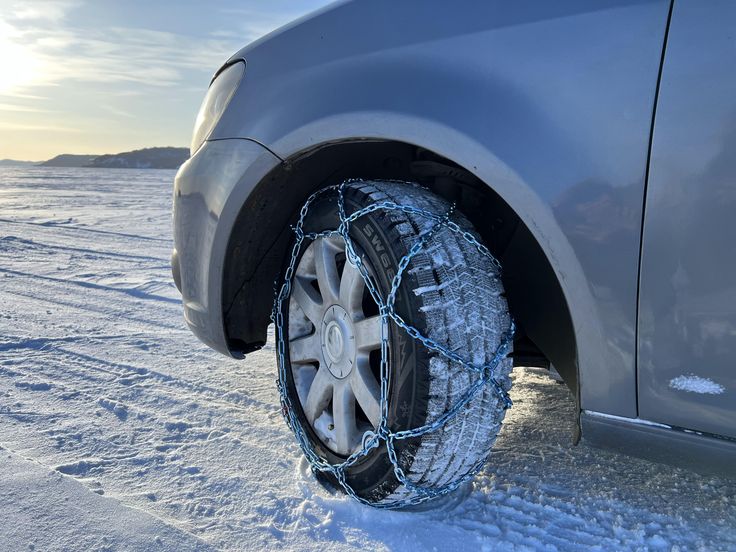In the world of engines, timing chains are often praised as the more durable, maintenance-free alternative to timing belts. They’re designed to last the life of the engine—or so we’ve been told.
But not all timing chains are created equal. While some cars run flawlessly past 300,000 miles without ever needing a chain replacement, others rattle, stretch, or snap way before they should, leaving owners with jaw-dropping repair bills and blown engines.
If you’re on the hunt for a dependable used car, knowing whether a vehicle’s timing chain holds up or falls apart could be the difference between peace of mind and a catastrophic breakdown. Timing chain failure is one of those silent killers that strikes without warning, and the repair isn’t just expensive—it’s often the end of the road for the engine itself.
This blog is for every gearhead, mechanic, and used car buyer who wants to avoid getting burned. We’ll look at five legendary cars whose timing chains are known to last forever, and five notorious rides where timing chain issues are all too common.
Whether you’re after long-lasting engine reliability or just trying to dodge a costly mistake, this guide is your shortcut to smarter car buying.
5 Cars With Timing Chains That Last Forever
These vehicles are the kings of mechanical reliability, known for bulletproof engines and timing chains that just won’t quit. Owners rack up mileage year after year without worrying about chain rattle or failure. If you’re looking for a car that will keep purring long past the 200,000-mile mark, these five are your safest bets.
ALSO READ: 5 Family Cars That Hold Their Value and 5 That Depreciate Like a Rock
1. Honda Accord (2.4L i-VTEC)
The 2.4L inline-4 i-VTEC engine in the Honda Accord is one of the most revered for a reason. It uses a robust timing chain setup that rarely fails, even after 250,000 miles. Known for its low-end torque, fuel efficiency, and butter-smooth operation, this powerplant has become the gold standard in long-lasting daily drivers.
Unlike many engines that suffer from timing chain stretch, the Accord’s chain-driven cam system stays quiet and solid. Regular oil changes are all it takes to keep this engine humming. Whether it’s the 2008 model or a 2014 version, reliability is baked in. Even high-mileage examples continue to deliver strong compression and no codes.
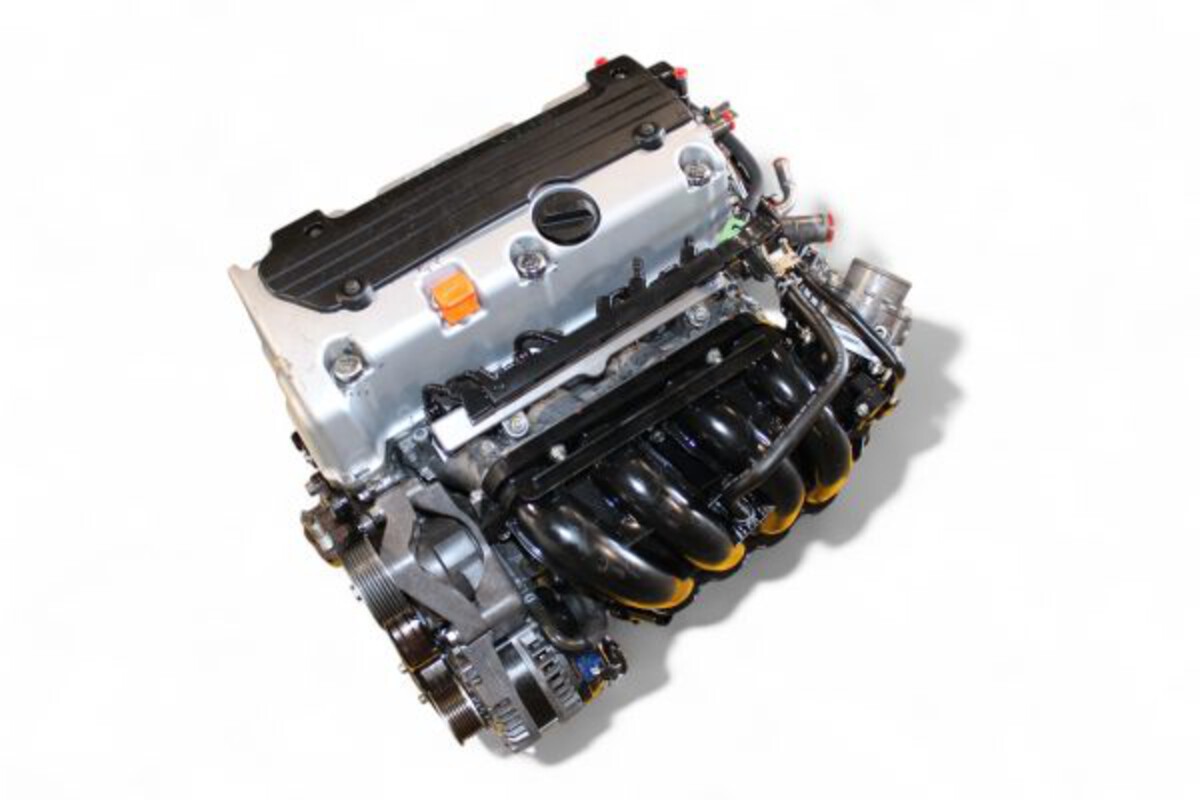
From a maintenance standpoint, the engine is also accessible—timing chain guides and tensioners rarely wear prematurely. There are countless stories of owners hitting 300,000+ miles without needing internal engine work.
If you want a reliable used car with a timing chain that doesn’t give out before the body rusts away, the Honda Accord 2.4L belongs on your shortlist. It perfectly combines performance, economy, and old-school Honda longevity. No squeaks, no rattles, just years of smooth cruising.
2. Toyota Camry (2.5L 2AR-FE)
The Toyota Camry’s 2.5L 2AR-FE engine isn’t flashy, but that’s exactly why it lasts forever. It’s an ultra-dependable four-cylinder with a steel timing chain system that’s become the stuff of legends. If you’re looking for a car where timing chain failure isn’t even a concern, this engine delivers.
Launched in the early 2010s, the 2AR-FE replaced the older 2AZ engine, and it fixed everything that annoyed gearheads. It has fewer oil-burning issues and a timing chain that doesn’t stretch, snap, or whine—even after years of daily grind. It’s not uncommon to see these Camrys at auctions with over 250,000 miles and still running strong.
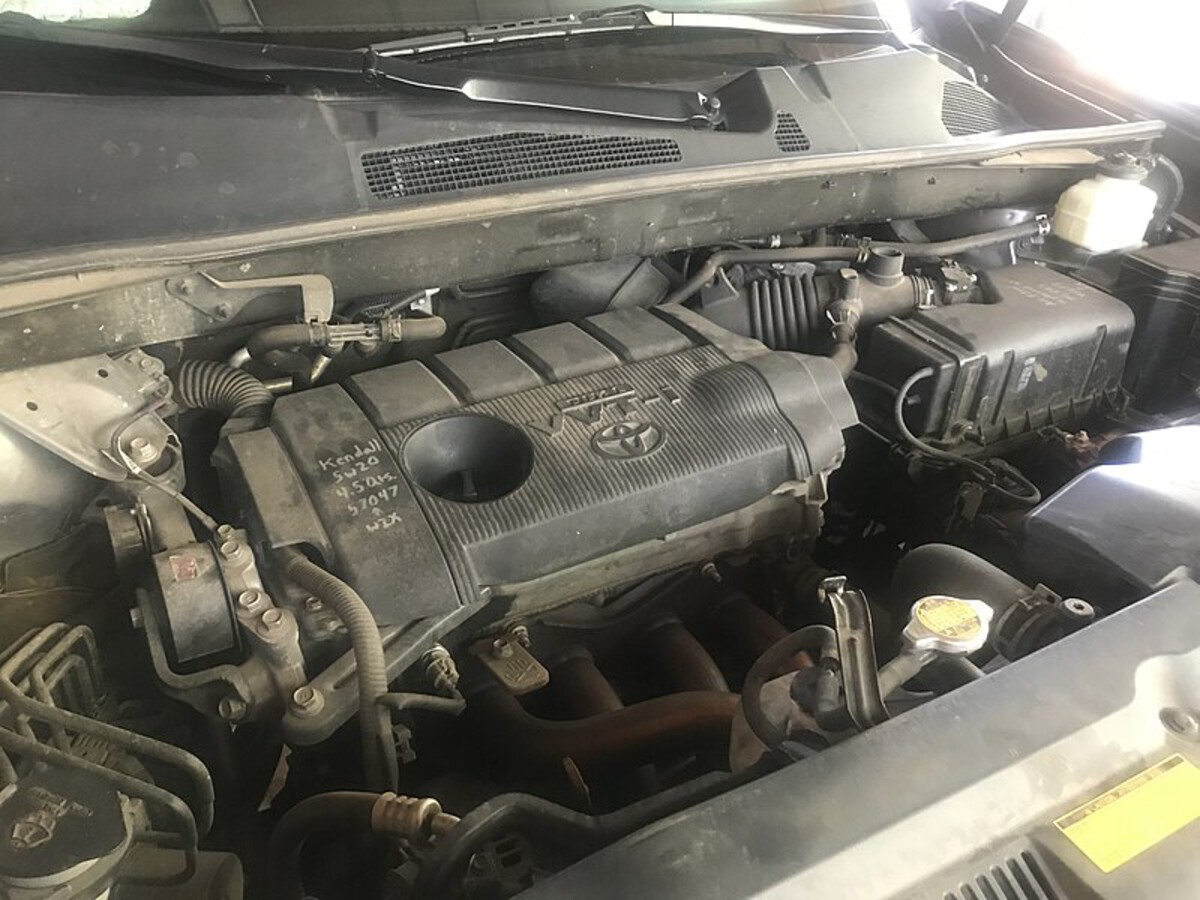
The timing chain tensioners, guides, and gears are all well-engineered, and unless you’re pushing it without oil changes, they’ll keep everything in sync effortlessly. Mechanics love these engines because they just work. No major timing system recalls, no service bulletins screaming “chain rattle,” just consistent durability.
For the budget-conscious buyer who doesn’t want to deal with costly engine repairs, this Camry engine is a home run. It might not excite your senses, but it’ll start every morning, run quietly, and cost next to nothing to maintain.
3. Lexus LS430 (4.3L 3UZ-FE)
When Lexus built the LS430, they weren’t just chasing luxury—they engineered a V8 engine so solid, even the timing chain system feels immortal. The 3UZ-FE 4.3L V8 is overbuilt in the best possible way, and timing chain issues are practically non-existent.
This powerhouse uses a steel timing chain setup that rarely stretches, even under heavy driving or poor maintenance. The tensioners and guides are hydraulic and made to handle serious wear. It’s not uncommon to see LS430s gliding along at 400,000 miles with original chains and zero engine noise.
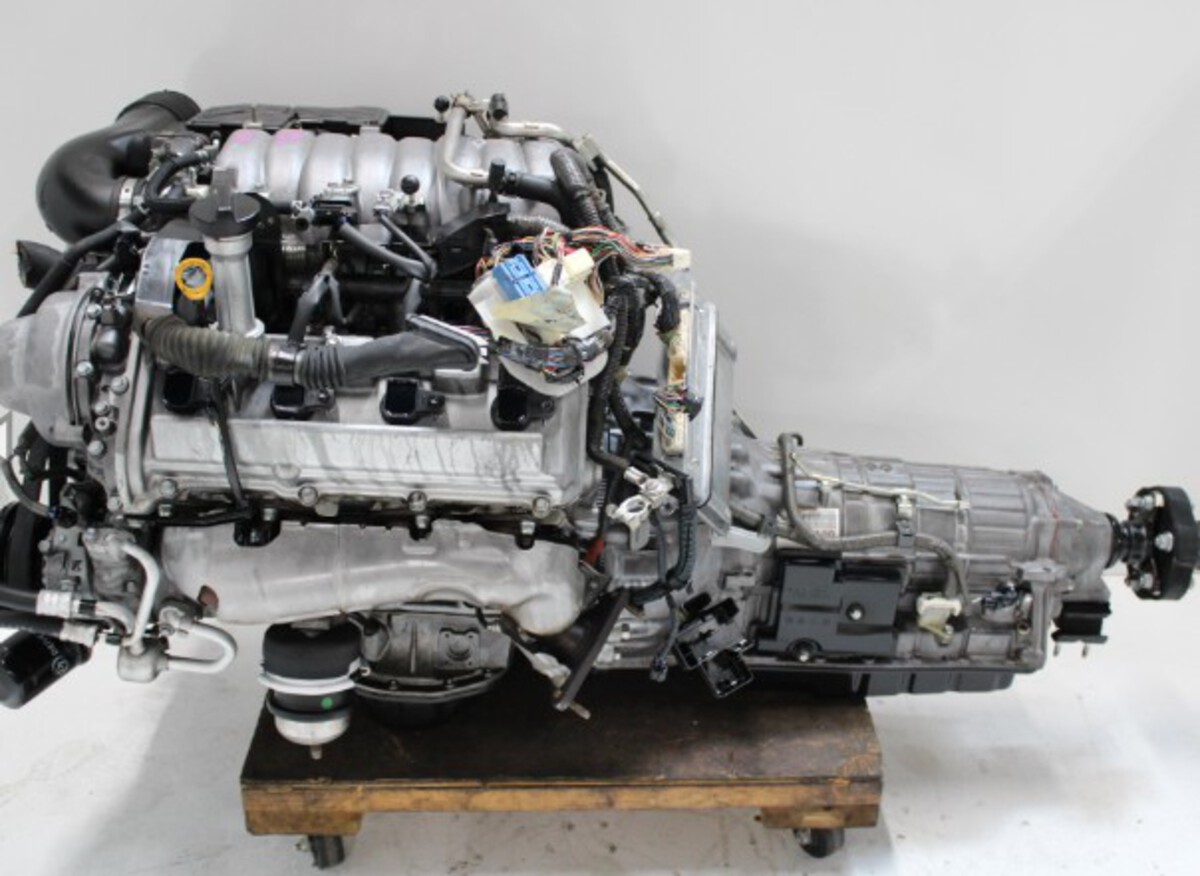
The LS430 itself was built during Toyota’s peak quality control era. Everything under the hood feels like it was designed to last longer than the driver. The timing chain system is hidden behind a fortress of engine components because it was never meant to be touched.
Enthusiasts often call this the “Million-Mile Lexus” for a reason. If you maintain it with regular oil changes, the timing chain will outlive the transmission, body panels, and possibly even your next car.
If you’re looking for a timing chain engine that never gives up, the Lexus LS430 is the silky-smooth, V8-powered tank that keeps on going.
4. Nissan Frontier (4.0L VQ40DE)
Nissan’s VQ-series engines are known for their power and durability, and the VQ40DE found in the Frontier is a shining example. This 4.0L V6 comes with a double timing chain system, and unlike the smaller QR series, this one is built to last.
Owners of the Frontier praise the engine’s ability to run hard, tow heavy loads, and still keep timing chain issues at bay. As long as the engine is fed clean oil regularly, the chains don’t stretch or fail. The guides and tensioners are also up to the task, designed for high-load applications like off-roading and towing.
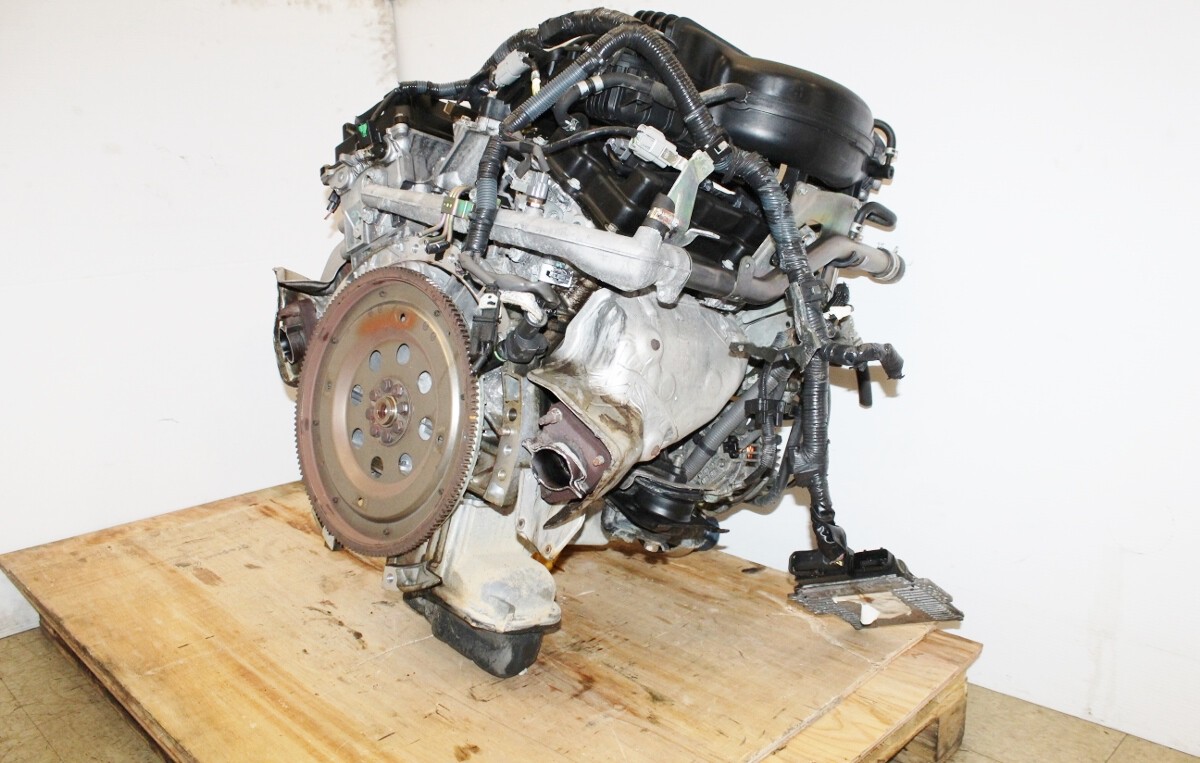
Mechanics often refer to the VQ40DE as “overbuilt,” and for good reason. It has a thick block, forged internals, and a robust oiling system that keeps the timing chain components lubricated in even the harshest conditions.
This engine has its quirks—like high rev noise and thirsty MPG—but timing chain failure? Not a concern. It’s one of the few mid-size trucks with a dependable timing chain setup that rarely needs internal repair.
If you’re an adventure junkie or need a long-lasting truck engine, the Frontier’s VQ40DE delivers raw power and reliable timing performance in one muscular package.
5. Chevrolet Impala (3.6L LFX V6)
The 3.6L LFX V6 engine used in the Chevrolet Impala and other GM models is a surprising entry in the list of reliable chain-driven engines. While older GM V6s had chain-related issues, the LFX version refined the design with improved tensioners and a more balanced chain layout.
Launched around 2012, the LFX features a robust timing chain setup that lasts well beyond 200,000 miles, provided the engine is properly maintained. It’s a direct-injection engine, but unlike its predecessor, the LLT, it avoids carbon buildup and premature chain wear thanks to improved PCV systems and updated calibration.
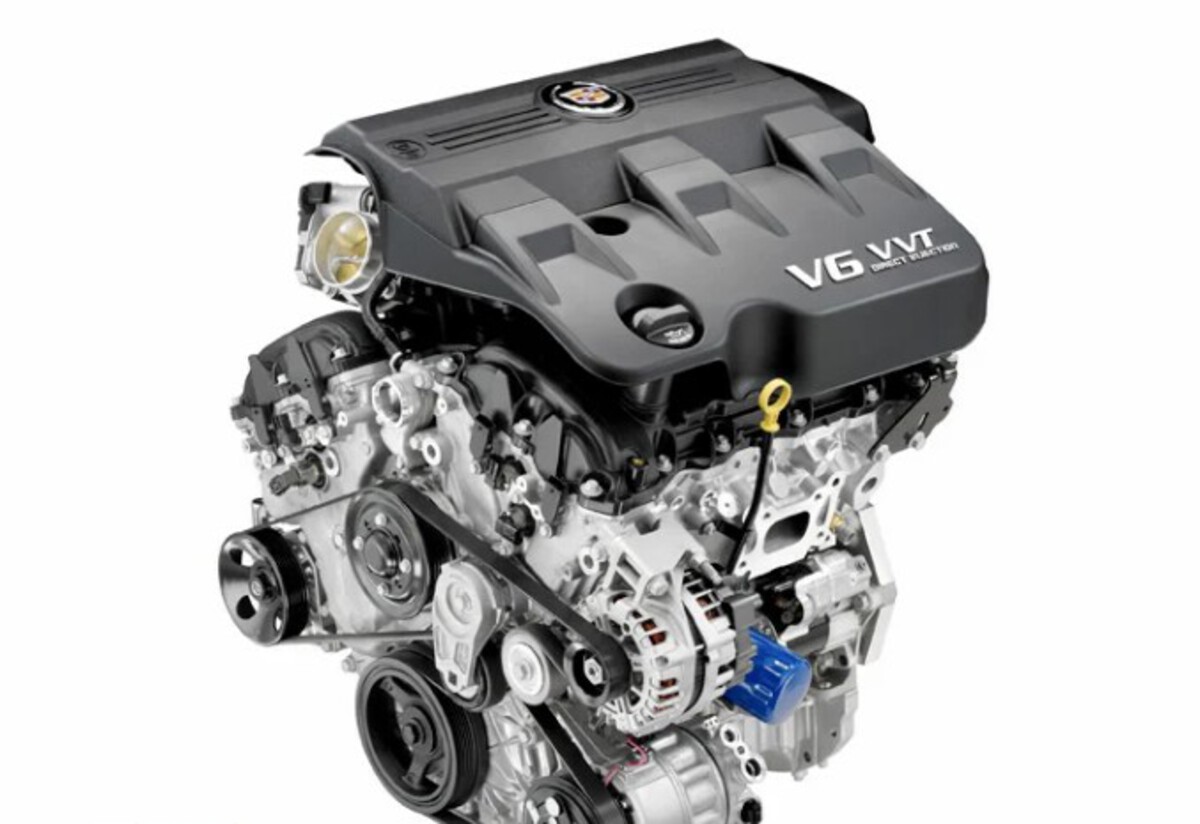
This Impala engine delivers solid torque, smooth cruising, and low NVH (noise, vibration, harshness). And with very few reports of timing chain problems, it’s become a trusted motor in the used car world.
Of course, regular oil changes and good driving habits still matter. But if you’re shopping for a used American sedan with a timing chain that won’t quit, the Impala with the LFX engine is a sleeper pick that delivers real value and surprising longevity.
5 Cars With Timing Chains That Snap Too Soon
These cars may look dependable on the outside, but under the hood lurks a ticking time bomb—their timing chains are known to stretch, rattle, or fail well before they should. If you’re buying used or already own one, beware: these engines have gained a reputation for catastrophic failure and expensive repairs, often way too early in their lifespan.
ALSO READ: 5 EcoBoost Engines That Impress and 5 That Constantly Misfire
1. Mini Cooper (1.6L N14 Turbo)
Ah, the Mini Cooper. It may look cute, but under the hood—especially in the turbocharged N14 engine—is a timing chain disaster waiting to happen. Found in 2007–2010 Cooper S models, this 1.6L turbo engine suffers from early chain stretch, rattle, and complete failure.
One of the biggest issues lies in the chain tensioner. It weakens far too early, causing the chain to lose tension and slap against the guides. This isn’t just noisy—it’s destructive. Left unchecked, it can lead to total engine failure. Many owners report timing chain failure as early as 60,000 miles, with repairs costing thousands.
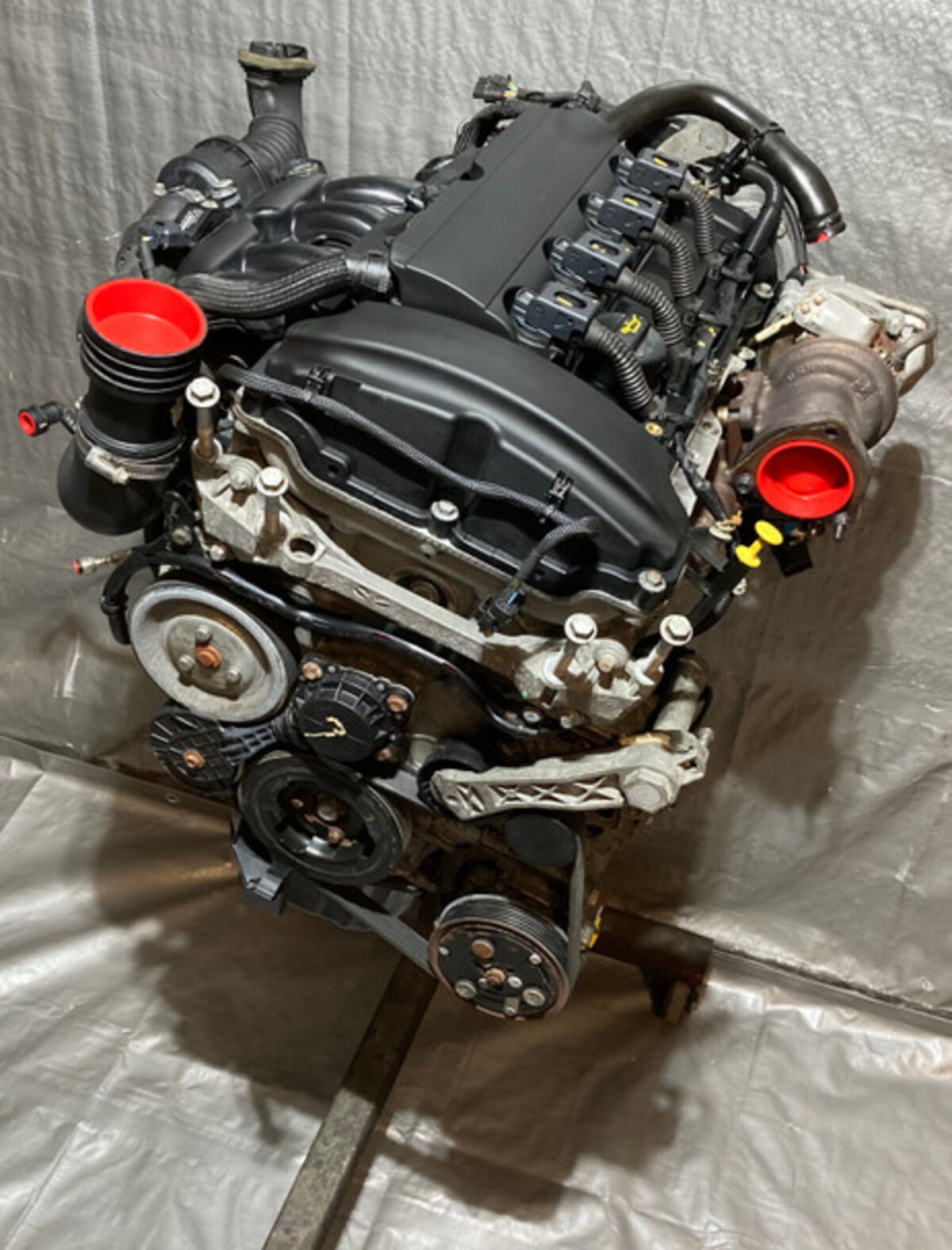
The infamous “death rattle” is a known symptom, often heard during cold starts. It’s a warning sign that the chain is on its way out. Some enthusiasts replace the timing chain components as part of routine maintenance, which is not something you should have to do on a chain-driven engine.
Despite being fun to drive, the N14-powered Mini is a reliability gamble. If you’re shopping for a used Mini, avoid this engine or budget for major repairs. The fun might end fast—and expensively—if that chain lets go. In the timing chain world, this is one of the worst offenders.
2. Audi A4 (2.0L TFSI EA888 Gen 2)
Audi’s 2.0L TFSI engine from the late 2000s and early 2010s might offer great performance and fuel economy, but it’s also infamous for timing chain system failures that show up long before they should. Models like the 2009–2012 A4 are particularly plagued by premature chain stretch and tensioner failure.
The tensioner design is the main culprit here—it tends to lose hydraulic pressure, causing the chain to slack and eventually jump timing. When that happens, the engine’s done. It’s not a matter of “if” but “when.” Many owners report catastrophic failure under 80,000 miles.
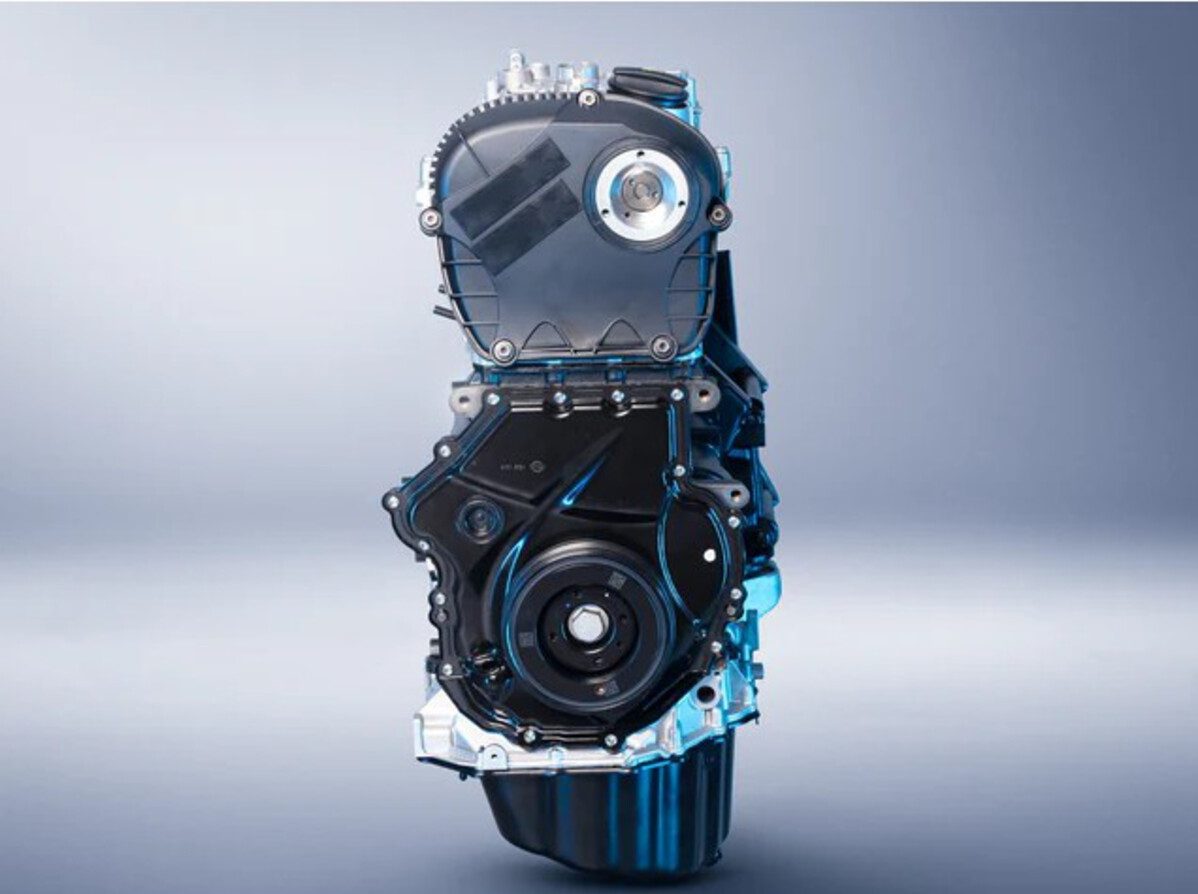
To make matters worse, the chain is located at the rear of the engine, making replacement labor-intensive and expensive. Some mechanics recommend a preemptive timing chain service around 60k miles, which defeats the point of a maintenance-free chain setup.
There were class-action lawsuits and revised tensioners issued, but many vehicles still suffer from these issues. Buying a used Audi with this engine is a serious risk unless the timing chain has already been replaced with the updated parts.
For a brand known for luxury and engineering, this was a major oversight—and it’s cost thousands of owners their engines. This one’s a timing chain nightmare, not a dream.
3. BMW 528i (2.0L N20 Turbo)
BMW’s N20 engine, used in models like the 2012–2015 528i, is another turbocharged powerplant with a terrible timing chain reputation. On paper, it’s efficient and punchy. In reality? It’s known for chain guide failure and severe timing issues, often before the odometer even hits six figures.
The root of the problem is the plastic chain guides. They become brittle over time and break, causing the chain to lose tension or skip teeth. When that happens, the engine timing is thrown off, sometimes with catastrophic valve damage.
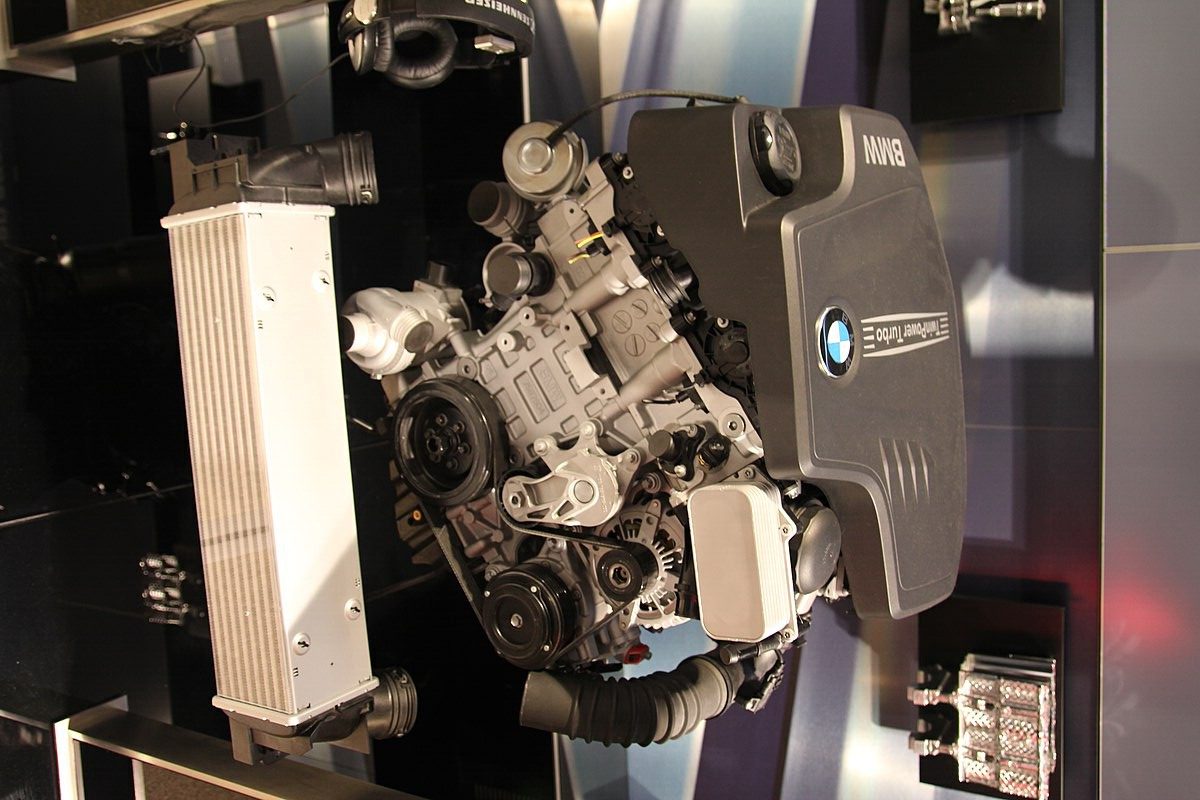
BMW issued a technical service bulletin for the issue and eventually redesigned the parts, but many early N20s are still on the road with the original failure-prone components. A timing chain job on this engine can run over $3,000 due to its complexity and cramped engine bay.
Owners often report “chain slap” or check engine lights with camshaft timing errors, which are early signs of trouble. Once symptoms start, the countdown begins unless you act fast.
If you’re eyeing a used BMW with this engine, ask for a full timing system service history. Otherwise, you might inherit an expensive problem. For an engine that’s supposed to be modern and refined, its timing chain setup is anything but.
4. Cadillac CTS (3.6L LLT V6)
The Cadillac CTS with the 3.6L LLT V6 engine from the late 2000s and early 2010s was GM’s shot at luxury performance, but it missed the mark when it came to timing chain durability. These engines are notorious for early chain stretch, particularly due to oil maintenance neglect or long oil change intervals.
The culprit? GM’s flawed oil change recommendation. The engine was marketed with a 7,500–10,000-mile oil interval, but the chain system simply can’t handle that. The chain starts to stretch, throwing camshaft correlation codes and eventually jumping timing. It’s common to see issues arise before 100,000 miles.
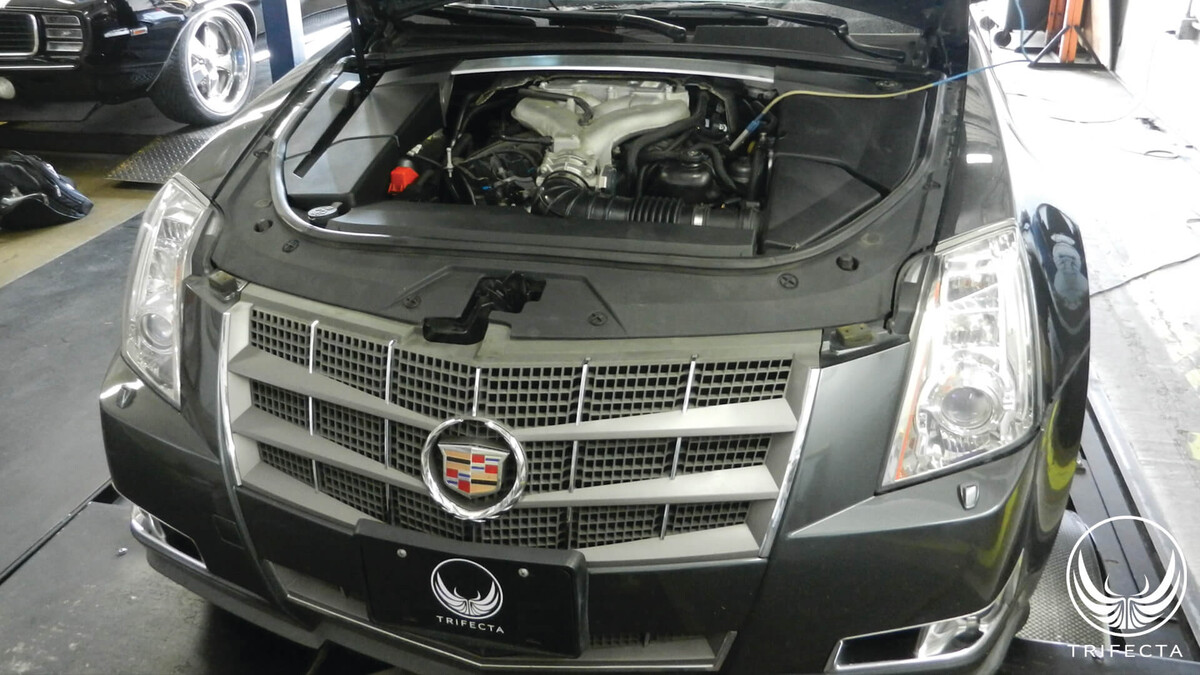
GM later revised the oil interval and released updated chains and tensioners, but the damage was done. Replacing the timing chain set on this engine is expensive and often not worth it on high-mileage examples.
The LLT V6 was used across many GM models, but the CTS is where its failures stand out most. For a car that’s meant to represent American luxury, this timing chain flaw ruins the ownership experience.
If you’re buying a used CTS, either avoid this engine or confirm a full timing chain replacement has already been done. Otherwise, you’re gambling with one of GM’s most unreliable setups.
5. Volkswagen Tiguan (2.0L TSI Gen 1)
The early Volkswagen Tiguan with the 2.0L TSI engine may seem like a solid Euro crossover, but underneath lies one of the worst timing chain setups in modern car history. Specifically, models from 2009–2013 are plagued by chain tensioner failures that can lead to full engine destruction.
The issue stems from a weak tensioner design that fails to maintain chain tension. If the chain slips just one tooth, it can bend valves and require a full engine rebuild. Many owners have reported failures under 80,000 miles, and often with no warning signs.
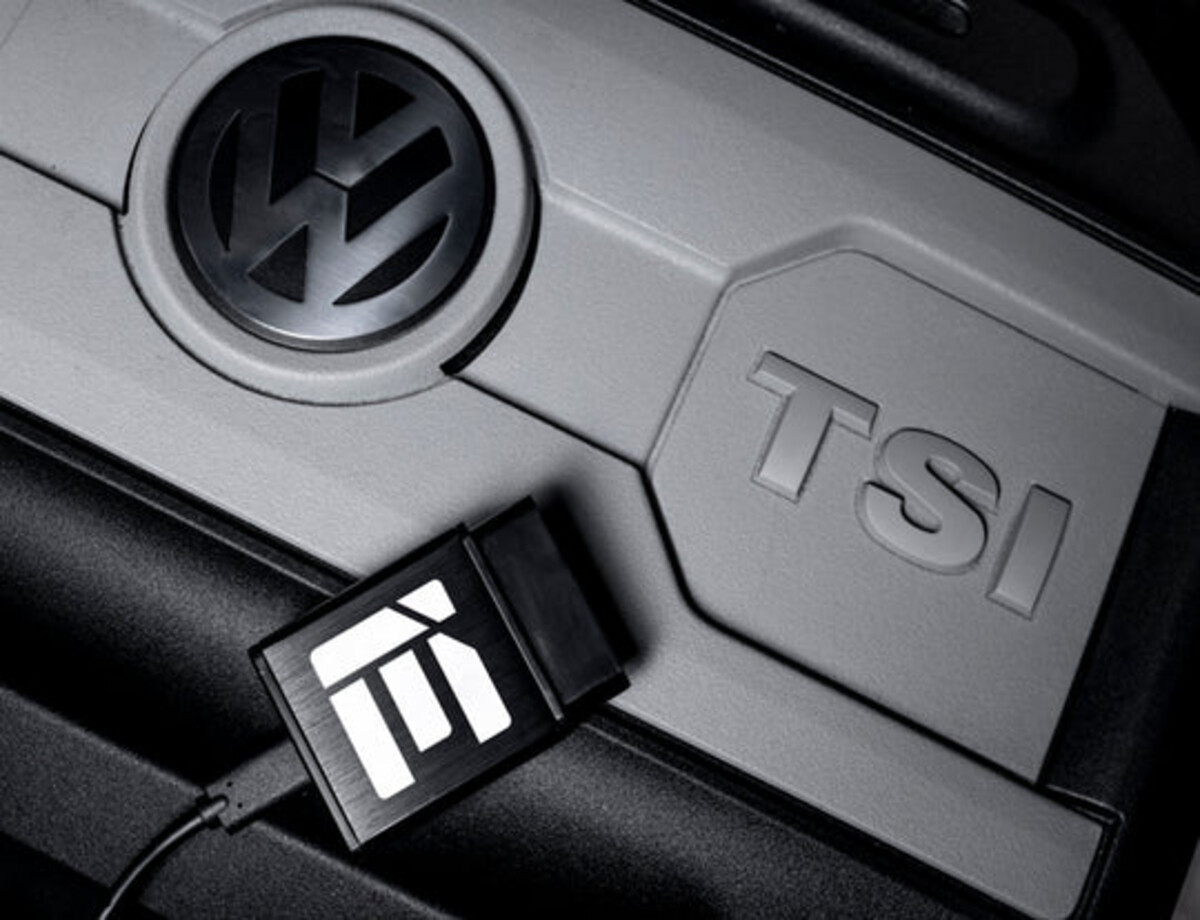
To make matters worse, there was no official recall, only technical service bulletins. So unless the previous owner voluntarily upgraded the tensioner, you’re at risk. VW did fix the issue in later generations, but the early Gen 1s are still rolling time bombs.
While some enthusiasts swap in upgraded parts as a preventative measure, most owners are blindsided by a failure they didn’t know was coming. Buying a used Tiguan with this engine is like playing Russian roulette with your wallet.
If you’re committed to VW, stick with newer models or diesel variants. Otherwise, this is one of the biggest timing chain failures of the past decade.
Timing chains were once the badge of long-lasting engines—the silent heroes that kept things running mile after mile. But as automakers pushed for smaller, more efficient engines with tighter tolerances and cheaper materials, that reliability took a hit. As we’ve seen, not all timing chains are built equally, and choosing the wrong vehicle can leave you with a massive repair bill—or worse, a dead engine.
Cars like the Honda Accord, Lexus LS430, and Toyota Camry prove that great timing chain design still exists, offering owners peace of mind and engines that just won’t quit. Meanwhile, the Mini Cooper, early Audi A4s, and BMW N20 engines have earned a reputation for early failure and mechanical nightmares.
So, what’s the takeaway? Do your homework. If you’re shopping used, research the specific engine, not just the model. Ask for maintenance records. Pay attention to owner forums. And always remember: just because a car has a timing chain doesn’t mean it’s bulletproof.
In the end, that humble chain can be your best friend—or your worst enemy. For those of us who live and breathe horsepower, there’s no heartbreak quite like hearing that rattle that signals the end. Choose wisely, and your engine will thank you.

